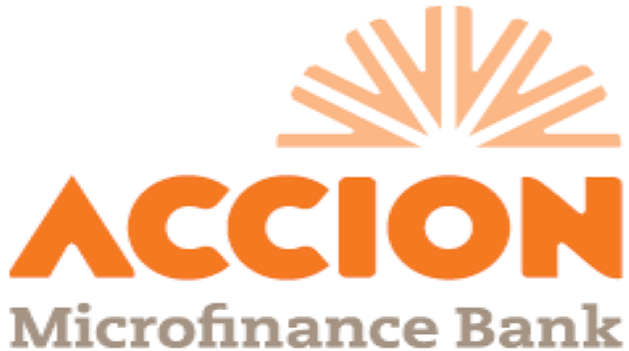E-Financial
Mobile Tech Tap to Drive Africa’s Financial Inclusion

New research urges African governments to work collaboratively with all role-players to introduce strong mobile tech-driven financial innovations in support of national development priorities and the social development goals (SDGs).

The study, “Digital finance platforms to empower all”, released last week by Vodafone Group, Vodacom Group, Safaricom and the United Nations Development Programme (UNDP), says this is how countries can accelerate progress and increase the impact of financial inclusion.
“The impact is potentially staggering, with the International Finance Corporation estimating digital finance has the potential to boost annual GDP of emerging economies by $3.7 trillion by 2025,” the report reads.
The analysis was conducted as part of the three telcos’ Africa Connected campaign, an initiative to drive sustainable development through collaboration and help close the divides that prevent progress in Africa’s key economic sectors.
The research, which examined 49 countries in Africa, Asia and Latin America, found that countries with successful mobile money services had an annual GDP per capita growth rate up to one percentage point higher than countries where mobile money platforms had not been successful or not introduced.
It says: “As post-pandemic economic recovery continues, with the cost of living and climate crises intensifying, governments are encouraged to leverage mobile financial services to strengthen financial inclusion, which increases economic resilience and furthers sustainable development.
“When managed correctly, mobile financial services can not only drive financial inclusion, poverty reduction and economic growth, but can also accelerate progress around the SDGs more broadly.”
According to the study, collaboration and strong partnerships underpin this success and will drive future acceleration of progress.
As such, it says, governments and multilateral organisations should engage all stakeholders, including the UNDP, the Africa Connected campaign, and other telecommunications, fintech and finance businesses, to make the recommendations discussed in this report a reality.
“In doing so, Africa can continue to equitably expand access to mobile financial services, with all stakeholders working together to ensure these services are delivered in a responsible way that unleashes their full potential on SDG achievement to uplift and empower all citizens.”
Principals of the report call upon African governments to urgently create an enabling legal and regulatory environment.
They say policy-makers must create an open and level playing field where financial regulators allow both traditional banks and non-traditional financial service providers to operate.
This, they say, will allow digital finance innovation to flourish through greater interoperability and openness of payment rails.
Aiaze Mitha, global lead, digital finance for the SDGs, at UNDP, says technology transformed financial access for Africans.
In the last decade, he says, more of the population has gained access to basic financial services, with the figure increasing from 23% of the population in 2011 to around 55% in 2021.
“A lot of that has been unlocked through mobile financial services, simply because more people have access to a connected mobile device.
“These services are complemented by a physical network of agents, who allow people to convert cash into digital currency so that they can start stepping into the formal financial system and start building up a credit history that will enable them to qualify for more sophisticated financial services.”
Looking ahead, Mitha notes there are a few obstacles Africa still needs to address around financial inclusion.
“First, there’s access to affordable mobile financial services, which includes such things as digital connectivity, devices and cost of broadband access. I’d say digital identity is also an issue.
“Being able to identify yourself so that you can access financial services is a major obstacle because there is a lack of digital identification in many countries across the continent.
“Fortunately, there are several players coming together to ensure digitalisation does not widen the digital and financial divide. In that sense, building capacity around financial and digital literacy will be a key element of greater, more qualitative financial inclusion.
“Finally, the notion of embedded finance must be raised. Many people will use financial services for a purpose, to fulfil a specific need, not just for the sake of it. For example, financial services are being built into specific e-commerce, transport, mobility, or social experiences and use cases.
“This will most likely open new avenues for even greater inclusion once people have the tools and connectivity to engage with these use cases.”
E-Financial
Zenith Banks Leads as 8 Banks Suffer N156Bn Impairment Charges

Eight leading Nigerian banks collectively set aside N156 billion as impairment charges on their credit and financial assets, marking a significant financial impact amidst a challenging economic environment, in the opening quarter of 2025.

Known commonly as loan losses or credit impairments, these charges highlight the banks’ defensive measures against risks arising from inflation, naira depreciation, and tightened liquidity affecting consumers and businesses alike.
The level of impairment varied considerably across institutions, reflecting divergent risk appetites and credit management practices.
Zenith Bank led with the highest provision of N49.38 billion, an 11.8 percent reduction from the previous year’s N55.97 billion.
This decline may suggest enhanced asset quality or more rigorous loan recovery tactics.
Broken down, loans and advances contributed N35.95 billion to impairments, while investment securities and treasury bills added N7.1 billion and N2.16 billion respectively.
Despite heavy provisioning, Zenith recorded a notable 20.7 percent increase in post-tax profit, soaring from N258.34 billion to N311.83 billion.
Similar trends emerged at First HoldCo, which posted N37.25 billion in impairment (down 11.2 percent), driven mainly by loans and advances provisions of N41.23 billion.
Offsetting this were write-offs and reversals that mitigated losses.
First HoldCo’s profit, however, fell to N171.10 billion from N208.11 billion.
Access Holdings and Guaranty Trust Holding Company also demonstrated reduced impairment charges, indicating stronger credit monitoring.
Access’s net provision dropped 4.5 percent to N21.77 billion, while Guaranty Trust’s impairment stabilized near last year’s N13.42 billion figure.
Yet, Guaranty Trust’s profit plunged 43.6 percent to N258.03 billion, a striking contrast to other banks’ profit growth.
On the other hand, United Bank for Africa (UBA) faced a staggering 332.2 percent surge in impairment, from N3.28 billion to N14.18 billion—pointing to amplified credit risks possibly driven by external economic pressures.
Nonetheless, UBA recorded a 33.1 percent profit uptick to N189.84 billion.
FCMB’s impairment charge fell notably by nearly 60 percent to N9.52 billion, aided by significant recoveries of previously written-off loans, boosting its profit to N32.23 billion.
Meanwhile, Fidelity Bank and Wema Bank posted sharp rises in impairment—285.8 percent and 64.7 percent increases respectively—reflecting heightened write-downs that underscore growing risk exposure amidst portfolio expansions.
Overall, while the cumulative impairment charge diminished by 5.2 percent compared to Q1 2024, individual bank results were mixed, embodying the varied strategies and external pressures in Nigeria’s banking sector.
E-Financial
SEC Flags FF Tiffany as Ponzi Scheme

Securities and Exchange Commission (SEC) has revealed plans to commence investigation into the activities of an entity operating under FF Tiffany, allegedly running a fraudulent investment scheme that has defrauded citizens.

A statement by SEC on Tuesday in Abuja said preliminary information revealed that the scheme, which promised investors unusually high and unrealistic returns, had resulted in the loss of several billions of naira.
The SEC said it viewed the activity as a threat to investor confidence and the overall integrity of the financial system.
The commission assured the public that it was working closely with law enforcement agencies and other relevant bodies to bring everyone involved in the unlawful operation to justice.
According to SEC, those found culpable will be prosecuted in accordance with Investment and Securities Act (ISA) and regulatory provisions.
SEC reiterated its earlier warnings to the general public to desist from engaging in Ponzi or unregistered investment schemes that promised guaranteed or exaggerated returns.
”These schemes are not registered with the SEC and do not offer investor protection under the law.
“The commission is currently investigating 79 schemes and will make a statement on its findings at the conclusion of the investigation,” the SEC said.
The commission encouraged investors to conduct due diligence and verify the registration status of any investment firm or product by visiting the SEC website or contacting the commission directly through official channels.
SEC said it remained committed to its mandate of protecting investors, ensuring fair practices, and maintaining confidence in Nigeria’s capital market.
E-Financial
AccionMonie App to Empower Low-Income Households

Accion Microfinance Bank has unveiled AccionMonie, a next-generation digital financial services platform aimed at empowering individuals, micro, small, and medium enterprises (MSMEs), as well as low-income households across Nigeria.

Speaking at the official launch in Abuja, Chief Executive Officer of Accion MfB, Taiwo Joda, described the introduction of AccionMonie as a significant milestone and a testament to the bank’s culture of innovation, designed to meet the evolving needs of its customers.
“At Accion Microfinance Bank, we believe in the potential of every MSME to drive inclusive economic growth. That is why we are committed to empowering them with the financial support they need to grow, innovate, and make a lasting impact in their communities and beyond,” Joda said.
He added that the app provides instant access to essential services including loans, savings, and other forms of financial support.
According to Joda, AccionMonie is a strategic component of the bank’s “Always There to Lend You a Hand” campaign, which underscores its commitment to small business development and the economic upliftment of underserved households. The campaign positions Accion MfB as not only a financial institution but also a trusted partner in its customers’ journey to prosperity.
Highlighting the economic role of MSMEs in Nigeria, he noted that with an estimated 37 million MSMEs, the sector accounts for 86% of employment and contributes 48% to Nigeria’s Gross Domestic Product (GDP). However, these enterprises continue to face major challenges such as limited access to finance, inadequate infrastructure, and an unfavourable business environment.
Also speaking at the launch, the bank’s Chief Commercial Officer, Stephen Olalere, said the combination of AccionMonie and the bank’s expansive network of over 74 branches across 12 states will help bridge the gap in financial service delivery to small businesses.
“The platform’s user-friendly features are designed to simplify payments and offer vital support to businesses and individuals alike,” he said.
Paul Ehiagbonare, Chief Digital Officer of the bank, described the launch as a bold step toward digital leadership and financial empowerment.
“For us, AccionMonie reflects customer empowerment through digital tools and technologies. It offers a range of customer-focused features designed to promote financial inclusion,” he said.
One of its standout features is Save2Loan, which allows users to save between ₦50,000 and ₦250,000 over a 90-day period and become eligible for a loan worth twice their saved amount. This, Ehiagbonare explained, will help promote a savings culture while enhancing credit access.
In addition, customers can conveniently fund their AccionMonie accounts using any debit card, eliminating the need for physical visits or long queues in banking halls.

 Telecom2 days ago
Telecom2 days agoNCC Introduces N10m Licence Fee for Bulk SMS Service

 Telecom2 days ago
Telecom2 days agoMTN Nigeria Targets $1Bn Cloud Market with Largest Modular Data Centre

 General News2 days ago
General News2 days agoWoodhall Capital and Partners Launch ₦1.5Bn Fund

 E-Business2 days ago
E-Business2 days agoFirm Highlights Top Risks of Quantum Computing

 General News2 days ago
General News2 days agoBurna Boy Distances Himself from Meme Coin, Labels Crypto as Fraud

 Telecom2 days ago
Telecom2 days agoPAT Taps Osi as CEO

 E-Financial2 days ago
E-Financial2 days agoAfrica Launches PAPSSCARD, First Pan-African Card Scheme

 E-Financial1 day ago
E-Financial1 day agoZenith Banks Leads as 8 Banks Suffer N156Bn Impairment Charges


























